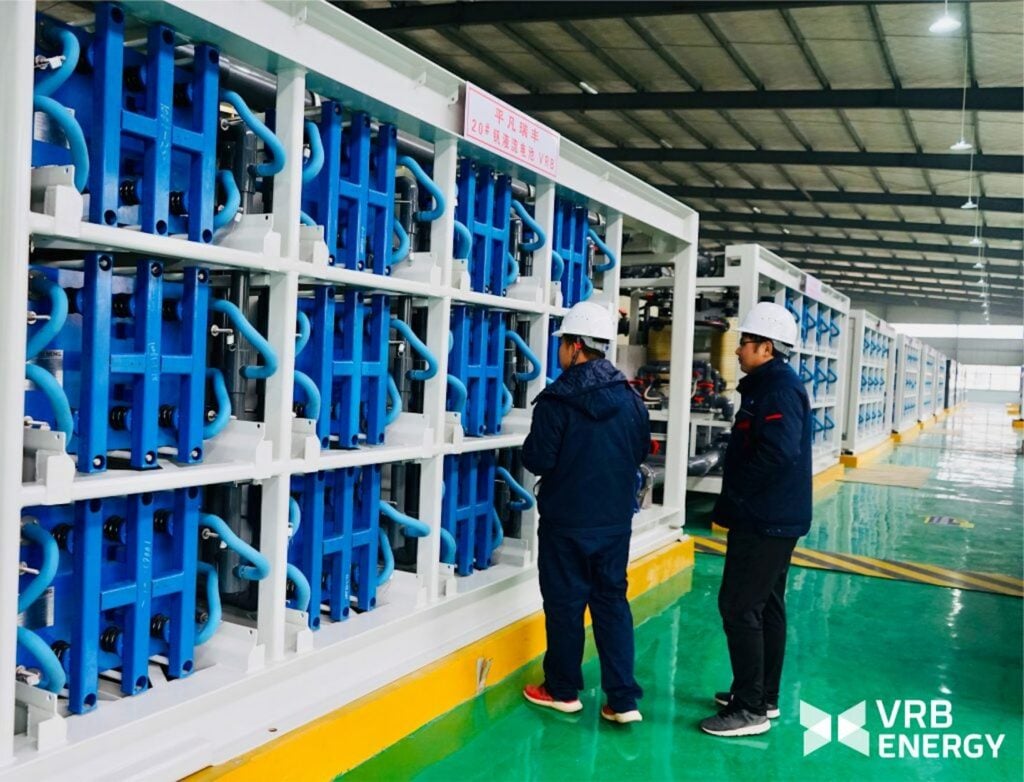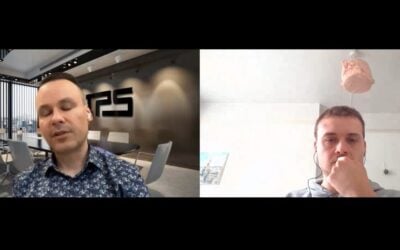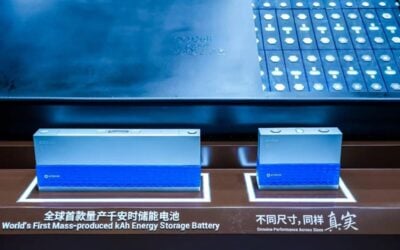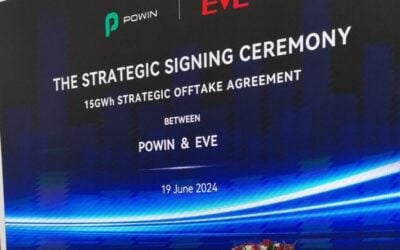
Australia’s Prime Minister Scott Morrison has announced financial support for four technology sector manufacturing projects in the country, including a vanadium processing plant.
Morrison said during a speech at an industry event in Western Australia that AU$243.6 million (US$177.47 million) in funding will support efforts to establish a homegrown value chain for critical minerals, batteries and electric vehicles.
Enjoy 12 months of exclusive analysis
- Regular insight and analysis of the industry’s biggest developments
- In-depth interviews with the industry’s leading figures
- Annual digital subscription to the PV Tech Power journal
- Discounts on Solar Media’s portfolio of events, in-person and virtual
It is part of his government’s Modern Manufacturing Initiative, a drive to put a total of AU$1.3 billion investment into the economy.
Along with AU$30 million towards establishing the world’s first rare earth separation facility outside China – a project with a total cost of AU$90.8 million, three projects relating directly to battery energy storage will benefit.
One is Australian Vanadium’s vanadium processing plant, which will receive AU$49 million of its expected AU$367 million cost. The company is seeking to process high-purity vanadium from a mining deposit it is developing in Meekatharra, Western Australia at a plant in Tenindewa, about 500km away.
Australian Vanadium will utilise green hydrogen to transport the metal, with the aim of using the processed material for flow battery production.
Also receiving funding is a nickel manganese cobalt (NMC) lithium-ion material refinery ‘hub’ in development by Pure Battery Technologies – which claimed to have a process for producing high quality materials at lower cost than others.
Pure Battery Technologies (PBT) and its partner, Poseidon Nickel, will receive AU$119.6 million through the scheme. The project’s total cost is expected to be AU$399 million and it is set to be built in Kalgoorlie, also in Western Australia.
PBT’s process for making precursor cathode active materials (PCAM) was developed at the University of Queensland. The company is commercialising two processes, one called Selective Acid Leaching, the other Combined Leach, which it said on its website can make materials with a lower environmental footprint than other processes and either primary intermediate materials or recycled ‘black mass’ can be used as feedstock.
Another partnership, between minerals exploration company Alpha HPA and mining and construction support services group Orica, is developing a AU$330 million high purity alumina production plant in Gladstone, Queensland.
The government has awarded the project AU$45 million in funding, with the alumina to be used for products like lithium batteries and LED lighting.
“Projects like these make for a stronger economy and a stronger future for Australia,” Morrison said.
“These projects are about manufacturing the products and materials Australians need and the world needs, by making them right here at home.”
Australia is belatedly joining a race which Europe and latterly the US and India are participating in, each hoping to reduce the world’s almost total dependency on East Asia – and mainly China – for processing materials for, and manufacturing of, batteries.
Morrison’s Minister for Industry, Energy and Emissions Reduction Angus Taylor said that the initiative is designed to address China’s dominance in key industries including batteries.
“Australia is lucky to have some of the largest reserves of the critical minerals and metals which drive the modern global economy. But China currently dominates around 70 to 80% of global critical minerals production and continues to consolidate its hold over these supply chains,” Taylor said.
Recognition of home advantage on vanadium
It is the second award of funding for Australian Vanadium through the initiative, after the company was awarded AU$3.9 million last year to help fast-track its vanadium processing capabilities.
The vanadium flow battery was invented in Australia at the University of New South Wales and the country is thought to have rich raw material resources in the ground.
Yet none of the world’s three primary vanadium producers have operations there, nor are there electrolyte or flow battery production plants in the country, which one of the technology’s main inventors, UNSW professor Maria Skyllas-Kazacos, told our quarterly journal PV Tech Power is an unfortunate fact.
Australian Vanadium and others are seeking to change that and establish operations further downstream in the value chain. Australian Vanadium is developing a vanadium electrolyte production plant which it claimed will be able to produce enough liquid electrolyte for 33GWh of flow batteries each year. It has already selected contractor Primero for the first stages of construction, the company told Energy-Storage.news last September.
Australian Vanadium has set up a flow battery subsidiary, VSUN Energy, through which it aims to market and commercialise flow batteries using its own raw and processed materials, with a manufacturing partner, V-Flow Tech, based in Singapore.
Other companies are looking to establish flow battery supply chain capabilities in Australia from deposit to electrolyte. One, Vecco Group, is developing a mine in north-east Queensland and an electrolyte plant with 2 million litres annual production capacity, targeting the start of commercial operations next year.
Approval for another vanadium mine in Queensland has been granted by the state’s government, which is also looking to directly invest capital into establishing a processing plant.






